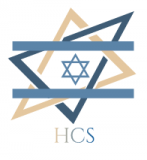This week’s parsha is Emor. It’s in two halves. The first one lays out the major holidays of the year.
First comes Rosh Hashanah, which is to be proclaimed with a blasting of the shofar. On this day, the same as the other holidays, a sacrifice is to be made. Immediately after that, Yom Kippur is listed. It’s described as a Day of Atonement. On both these holidays, no work is to be done.
Then we have Sukkot, after you have gathered in the produce of the land – in other words, after the harvest. On this day, people are to make a pilgrimage. They are to take “the fruit of beautiful trees, branches of palms and boughs of thick tree foliage, and willows of the brook.”
Next, is Shavuot, described as a pilgrimage festival of huts. Again, sacrifices are to be made and nobody works.
The second part of the parsha describes a rather disturbing incident. Someone got into a fight and “reviled the Name, and insulted it.” God ordered Moses to tell the Children of Israel to go outside the camp and stone him to death! Ouch!
Food for Thought:
In the days of the Bible, sacrifices were animals and grain. What kinds of sacrifices can we make today, and why would we want to?

